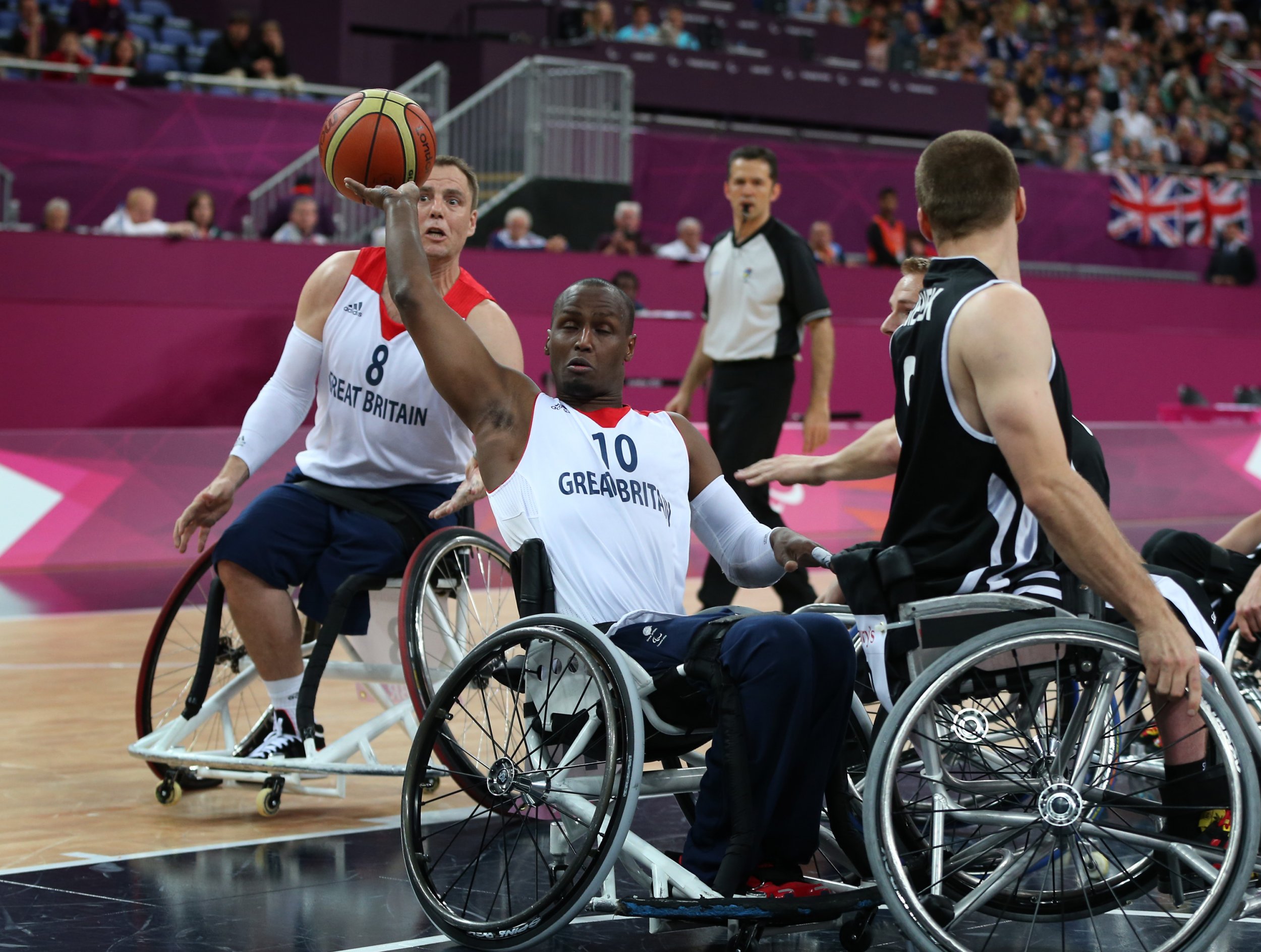
Paralympian Abdi Jama has two ambitions at the forefront of his mind. Firstly, the wheelchair basketball player wants to get selected for Team GB's squad for the 2016 Olympics in Rio de Janeiro. After tasting the bitter pill of fourth place at London 2012, where he captained the team, Jama is desperate to nail that elusive gold medal at what would be his third Paralympics.
Secondly, and in the longer term, Jama hopes to inspire more disabled athletes to get active in his native Somalia. The troubled Horn of Africa state has no registered disabled athletes and only established a Paralympic committee in 2015. (For context, only two able-bodied Somali athletes attended the 2012 Olympics.) Disabled people are also at risk of discrimination by families and the state in Somalia— a 2015 report by Amnesty International found that people with disabilities were subjected to violence and forced marriage and are viewed as a burden by their families.
"There's not a lot of disabled Somali athletes around so that's probably the biggest challenge for me—to get more disabled Somalis involved in sport," says Jama, 33, from his family home in Liverpool.
The wheelchair basketball player came to the U.K. when he was six years old in the late 1980s. His family fled Somalia and sought refuge in Britain as his homeland descended into a protracted civil war following the overthrow of military dictator Siad Barre in 1991. Somalia is still reeling from the effects of war now—despite swearing in its first formal parliament in more than 20 years in in 2012, the country is besieged by the Al-Qaeda affiliated militant group Al-Shabab, which continues to carry out attacks on an almost daily basis.
Jama says his experiences make him sympathetic to the plight of millions of refugees who are currently risking their lives to flee situations of conflict. Indeed, many of these come from Somalia—the country has a registered refugee population of just under 1 million and was ranked 13th in terms of the states with the most first-time asylum applications in the European Union in 2015. "War is one of those nasty things that I truly wish on nobody," says Jama. "For my parents to strive to get us to a better and safer place, it's a difficult thing that I couldn't even imagine."
Jama's life changed when, at the age of 14, he fell out of a window and damaged his spine, leaving him wheelchair-bound. He got involved in the sport under the guidance of Ade Orogbemi, a fellow wheelchair basketball player who was a teammate at Jama's at London 2012. Since first picking up a ball, Jama has gone on to play club basketball and win championships in a number of countries—including Australia, Germany and Spain—and currently plies his trade for Briantea84, just outside Milan, who are currently second in the Italian league and challenging for the title. Jama has been called the world's best 1-point player—a reference to the sport's classification system, which categorizes players on the basis of mobility, with 1-point representing the most limited mobility and 5-point the most mobile players.
Jama believes that his club form combined with his recent form for Team GB—he was part of the side that won the 2015 European Championships on home soil—stands him in good stead for selection for Rio. And that would mean a chance to right the wrongs of London 2012. "[Coming fourth] was a gutting result for us at home, it was a bit of a down moment for us," he admits. "Hopefully it's going to be third time lucky for that big gold medal. We look like one of the favorites."
His achievements on the court have seen Jama nominated for the International Somali Awards, an inaugural event taking place in London on Wednesday and backed by the Foreign & Commonwealth Office to honor members of the Somali community around the world. In his category of Sportsperson of the Year, Jama comes up against a familiar face—Mo Farah, the most successful distance runner in British history, who himself came to the U.K. aged eight after being born in the Somali capital Mogadishu. "I couldn't praise him enough for what he's done," says Jama. "Never mind Somalia, he's a role model for me because to see a British athlete doing what he's doing, making history and breaking world records, it's fantastic."
And Jama hopes that, once he has stopped shooting hoops and Farah has hung up his running spikes, they could combine to improve the perception of Somalia around the world. "I wouldn't mind doing something with him to change the perception of Somalia. Even just the slightest thing would change a lot of minds," he says.
Uncommon Knowledge
Newsweek is committed to challenging conventional wisdom and finding connections in the search for common ground.
Newsweek is committed to challenging conventional wisdom and finding connections in the search for common ground.
About the writer
Conor is a staff writer for Newsweek covering Africa, with a focus on Nigeria, security and conflict.
To read how Newsweek uses AI as a newsroom tool, Click here.








